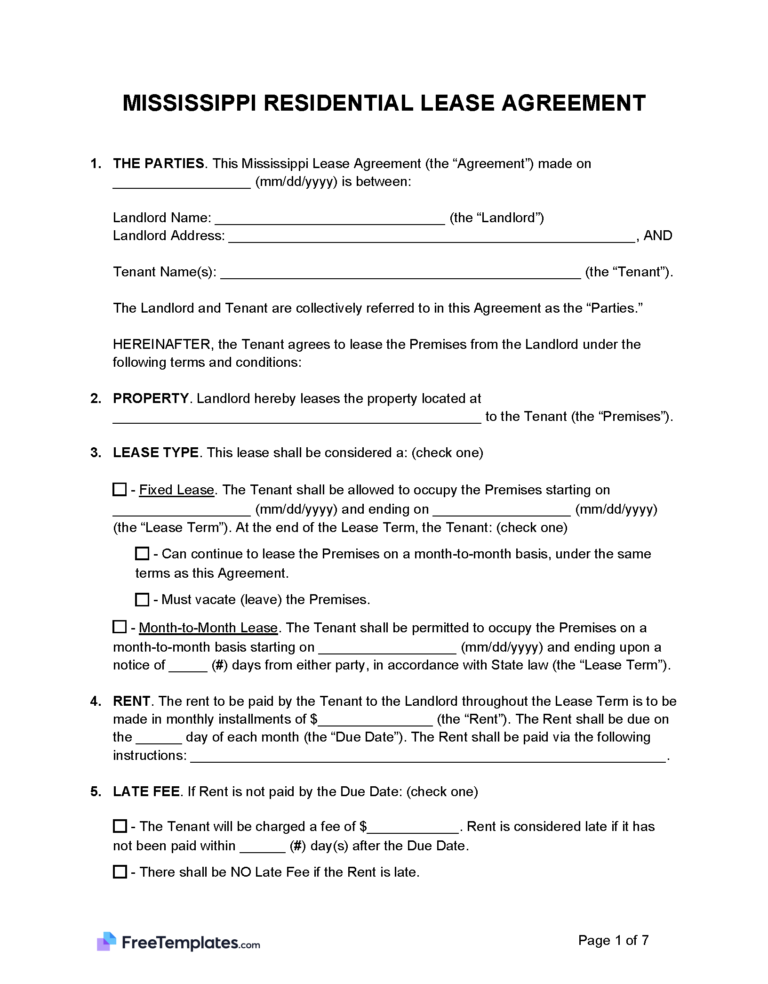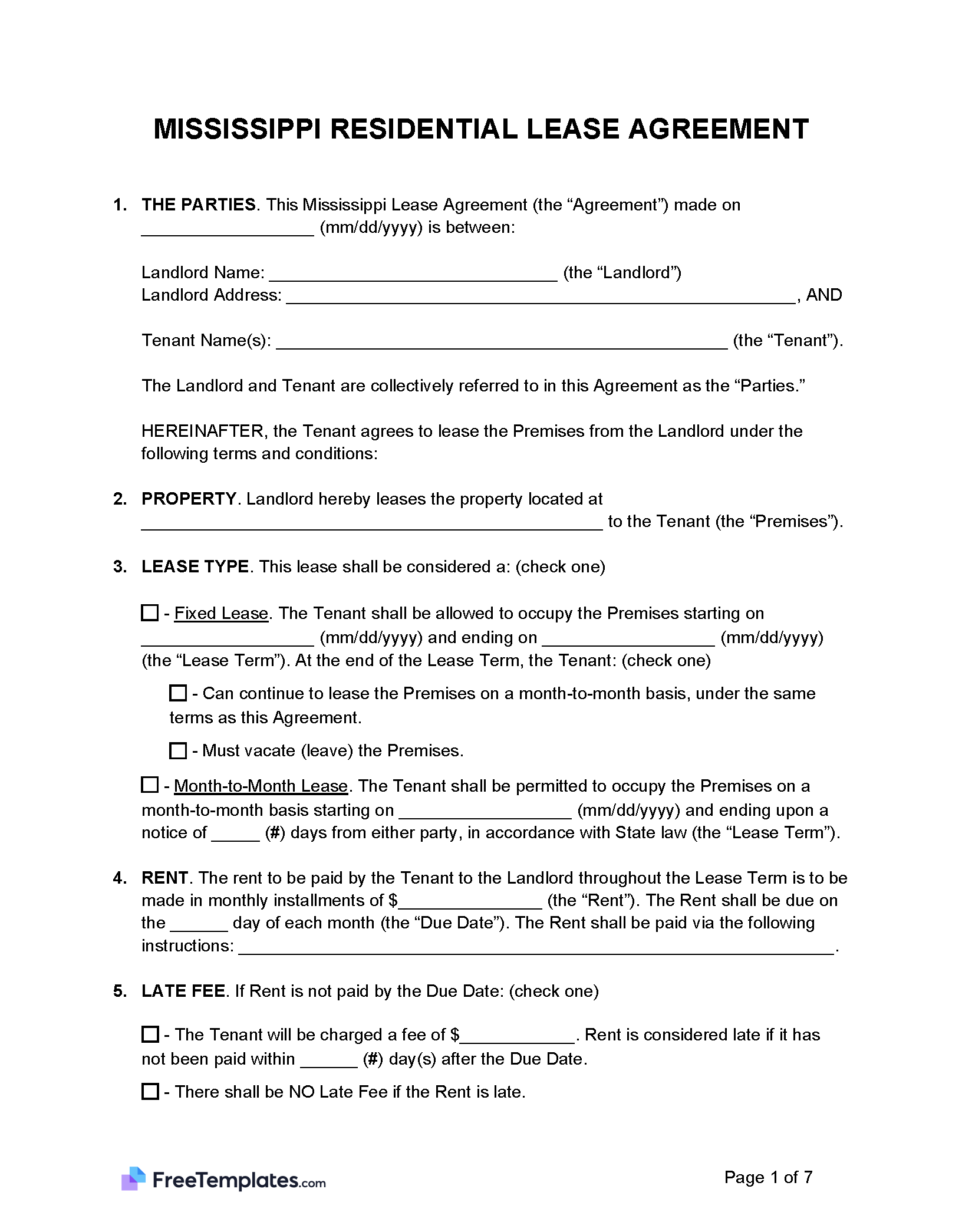By Type (6)
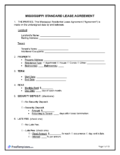 Standard Lease Agreement – The most common rental contract between a tenant and a landlord for a fixed term, typically 12 months. Standard Lease Agreement – The most common rental contract between a tenant and a landlord for a fixed term, typically 12 months.Download: PDF, MS Word, ODT |
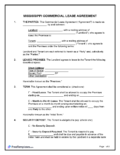 Commercial Lease Agreement – A legally binding rental document between a landlord and a business. Commercial Lease Agreement – A legally binding rental document between a landlord and a business.Download: PDF, MS Word, ODT |
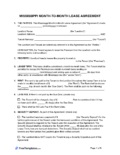 Month-to-Month Lease Agreement – A rental arrangement with a 30-day term where the landlord must give 30 days’ notice before terminating the legal rental document. Month-to-Month Lease Agreement – A rental arrangement with a 30-day term where the landlord must give 30 days’ notice before terminating the legal rental document.Download: PDF, MS Word, ODT |
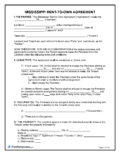 Rent-to-Own Agreement – A unique rental contract in which the renter buys the rental property at a future date. Rent-to-Own Agreement – A unique rental contract in which the renter buys the rental property at a future date.Download: PDF, MS Word, ODT |
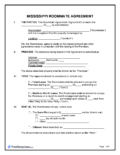 Roommate Agreement – This contract outlines the rules and responsibilities between cohabitants to help create a peaceful living situation between roommates. Roommate Agreement – This contract outlines the rules and responsibilities between cohabitants to help create a peaceful living situation between roommates.Download: PDF, MS Word, ODT |
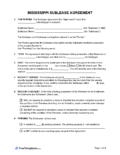 Sublease Agreement – A legally binding document used when a tenant rents out the rental property to a new tenant while still under the contract of the original lease agreement with the landlord. Sublease Agreement – A legally binding document used when a tenant rents out the rental property to a new tenant while still under the contract of the original lease agreement with the landlord.Download: PDF, MS Word, ODT |
Disclosures (1)
Lead-Based Paint Disclosure – To protect renters, particularly children under the age of 6, the federal government mandates that landlords of properties built before 1978 provide the tenants with an informational pamphlet disclosing the hazards of lead-based paint. They must also disclose whether any lead-based paint exists inside the property and include details on how to spot the symptoms of this dangerous material.
Security Deposit
Maximum Amount – Mississippi does not regulate how much a landlord can charge for a security deposit.
Returning to Tenant – The landlord may use the security deposit for late rent, repair damages (excluding ordinary wear and tear), cleaning at the end of the tenancy, or cover other reasonable and necessary expenses that were the fault of the tenant. Any deductions from the security deposit must be written in an itemized list. Any remaining balance must be returned to the tenant within 45 days of the end of the lease. (Miss. Code § 89-8-21)
Landlord Access
General Access – Mississippi does not regulate when landlords can access the rental unit, the notice they are required to give, or the reasons they can enter the rental unit.
Emergency Access – A Mississippi landlord can enter the rental premises anytime.
Paying Rent
Grace Period – In Mississippi, rent is due on the date listed in the lease agreement. There is no state-mandated forgiveness period for late rent.
Maximum Late Fee – Mississippi law does not regulate the maximum amount a landlord can charge a tenant for late rent, but the fee must be reasonable and disclosed in the lease agreement.
Returned Checks (NSF) – If the tenant gives a bad check to pay rent, advancements, or deposits, the landlord can charge a fee of $40. (Miss. Code § 97-19-57)
Reasons for Eviction (3)
Non-Payment of Rent – When the tenant does not pay rent, the landlord can serve a 3-day notice to pay rent in full or move out of the property. (Miss. Code § 89-8-13(5))
Non-Compliance – If the lease agreement is violated, the landlord can serve a 14-day notice to fix a lease violation, or the lease will end. If the same breach happens within 6 months, the landlord can give a 14-day notice to vacate the property. (Miss. Code § 89-8-13(3))
Serious Harm and Damages – The landlord does not need to give notice if the tenant substantially harms the property or others. (Miss. Code § 89-8-19(4))
